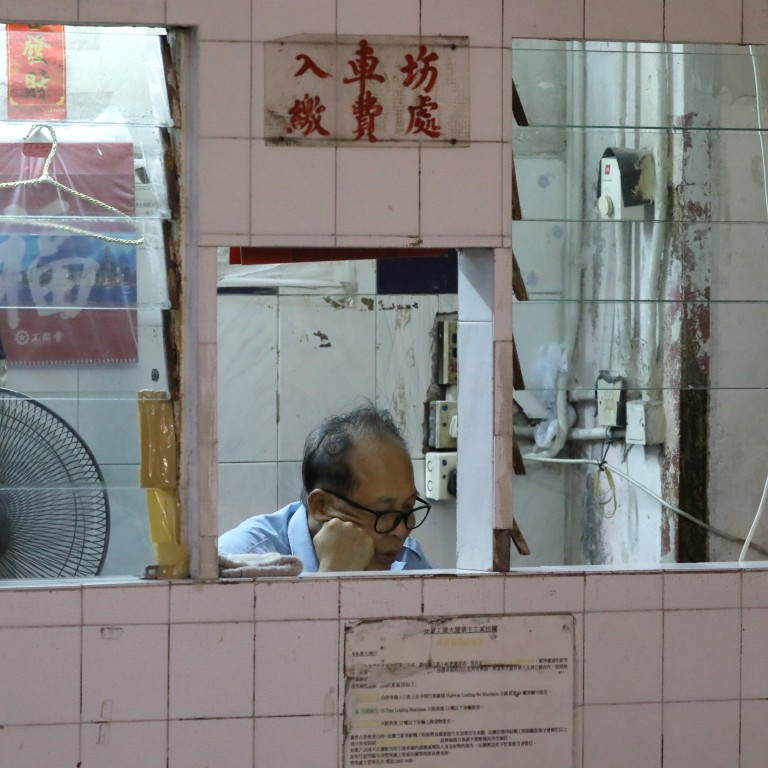Advertisement
Advertisement

Opinion
Paul Yip
Paul Yip
As Hong Kong tops many ‘most expensive’ charts, ordinary Hongkongers struggle to make ends meet
- The government must ensure that Hongkongers can thrive in their own city first instead of worrying about attracting foreign talent. Low-income workers, who have not benefited from the city’s economic development, should be the focus
Hong Kong is the most expensive city in the world on a number of counts – for housing, for business travellers and overall cost of living. Young people wanting to get married have to cough up HK$360,000 on average for a wedding banquet, a 10 per cent increase over last year. The average family would need to save up for 21 years without spending a single dollar to be able to buy a home in the city, according to one study.
The wage of the ordinary worker, however, remains low. The median monthly income is HK$17,500 and has increased by 4 per cent from last year. After adjusting for inflation, the real wage increase was only 1 per cent. Wage increases, except for high-income earners, have not been able to keep up with the increased cost of living. Relying on a wage hike to improve one’s quality of life is nearly impossible. If a family can make ends meet, it would count itself lucky.
For low-income earners, the struggle is harder. Although the minimum hourly wage will increase from HK$34.50 to HK$37.50 in May, the base rate is still too low. It prompts low-skilled workers, such as security guards, to work longer hours at the expense of their health, leisure and family time.
Security guards who work 12-hour shifts earn HK$13,770 a month while those working eight-hour shifts earn HK$10,469. The extra HK$3,000 would incentivise many workers to opt for two-shift work, even though it means working for 30 per cent longer a day and, once travel time is considered, it leaves no room for life outside work.
There has been much research to demonstrate the adverse effect of overwork on well-being. In Japan, the Ministry of Health, Labour and Welfare recognised 93 suicides and attempted suicides in the 2014-15 financial year as having been caused by overwork, enabling family members to claim compensation.
In Hong Kong, hospital staff and bus drivers are chronically overworked, and we have seen a string of medical blunders and traffic accidents recently.
Occupational accidents are also a concern, especially in the construction industry. The penalties are not large enough to deter companies from failing to meet standards: the average fine for occupational safety offences last year was only HK$10,000, and merely HK$27,000 for fatal industrial accidents on building sites.
The latest MTR scandal shows that companies outsource work as well as responsibility. Given that the main contractor takes the bulk of the profit, subcontractors struggle to make ends meet. The rights and benefits of the subcontractor’s workers are not sufficiently protected.
Outsourcing is common in Hong Kong. There are over 20,000 contracted low-skilled workers in the four government departments that rely heavily on outsourced service contractors. We have yet to see concrete action from the government to improve their employment terms and conditions. The government has committed over HK$600 million to upgrade Hong Kong’s public toilets, but the working conditions of the cleaners also need attention.

Some of the injustices in our society and accidents that occur simply arise from the insensitivity of stakeholders to the need to rectify the wrongs. There has been much unhappiness in the community due to income inequality. This is not really related to hatred towards the rich. It is more that we have not done enough to help the vulnerable. Hong Kong workers, especially low-skilled ones who have worked hard and diligently over the years, deserve a better deal and to also benefit from economic development.
There are many reasons Hongkongers are migrating to other countries, are choosing not to have babies and are dissatisfied with their lives. But a key problem is that the city has become too expensive for most of its residents.
To make Hong Kong attractive again, the government must take concrete action to improve the quality of life of ordinary people. These people should be the focus of any responsible government’s attention. We need to make our city liveable to keep people from leaving, not only to attract foreign talent to Hong Kong.
Paul Yip is chair professor in the Department of Social Work and Social Administration at the University of Hong Kong

Post
